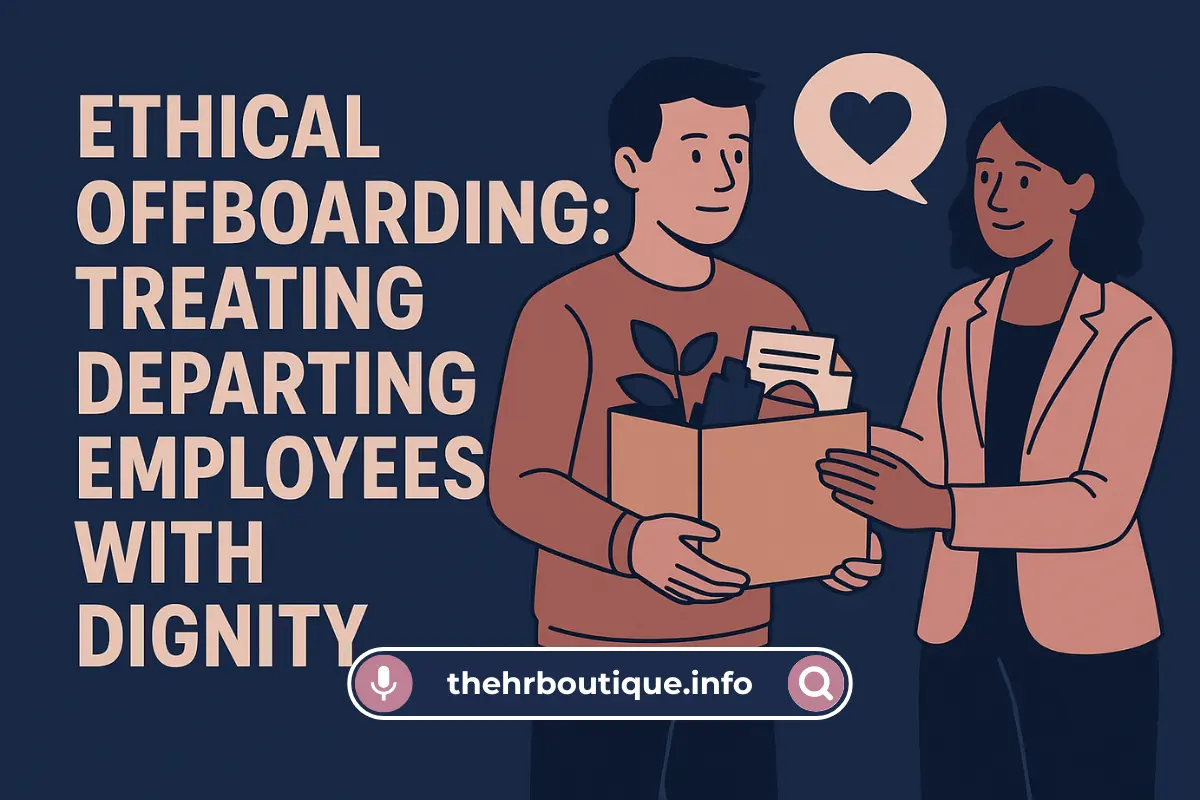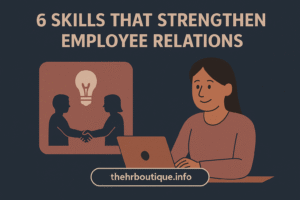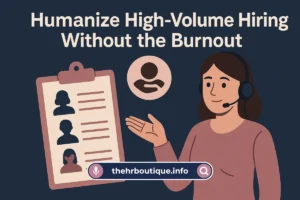Look, I get it—nobody likes breakups. Whether it’s an employee quitting or you having to let someone go, these moments are awkward as hell. But here’s the thing: how you handle someone’s exit says way more about your company than any fancy mission statement ever could.
I’ve seen companies completely botch this. Like, security-guard-escort-level bad. And I’ve also seen places that made departures so smooth, people actually wanted to come back later. Big difference.
So let’s cut the corporate nonsense and talk real-world, practical ways to offboard people like a decent human being.
Why You Should Care (Even If You Think You Don’t)?
- Your Glassdoor Page Will Thank You
You know those scathing reviews that make you cringe? Half of them come from people who got treated like garbage on their way out. And guess what? Job candidates read those. - The “Ex-Employee Mafia” is Real
That person you just fired? They’ll end up at a competitor, a client, or even back at your company someday. Screw them over now, and they’ll remember—and tell everyone. - Your Team is Taking Notes
When employees see someone get marched out like a criminal, they don’t think “Good riddance.” They think “Damn, is that gonna be me next?” - Lawyers Cost More Than Severance
Messy terminations = lawsuits. And not the fun, dramatic TV kind—the expensive, stressful, “why didn’t we just do this right?” kind.
The No-BS Guide to Not Screwing This Up
1. Stop Using Corporate Jargon
*”We’re restructuring.” “It’s not a good fit.” Just say what’s really happening.
- If they quit: “Bummer, but I get it. What could we have done better?”.
- If you’re firing them: “This isn’t working, and here’s why.” (Then actually explain.).
Pro tip: If you wouldn’t say it to someone at a bar, don’t say it during an exit conversation.
2. Make the Handoff Actually Work
Nothing worse than the “Oh crap, how does this thing work?” panic after someone leaves.
- Have them document the important stuff (passwords, client quirks, where the coffee fund money is hidden).
- Set up proper handoffs—not just “Hey team, figure it out!”
- Let them wrap up properly (unless they stole something, in which case, yeah, boot ‘em fast).
3. Throw Them a Bone (If You Can)
Not every exit needs a golden parachute, but:
- Two weeks’ pay costs less than a lawsuit.
- A LinkedIn recommendation takes five minutes and costs nothing.
- Job search help (resume tweaks, intros) builds lifelong goodwill.
4. Actually Listen in Exit Interviews (For Once)
Most companies treat these like checking a box. Huge mistake.
- Ask: “What sucked here?” Then shut up and listen.
- Don’t argue. This isn’t about being right—it’s about getting better.
- Fix the stuff that keeps coming up. If three people say your manager’s a nightmare, maybe… address that?
5. Skip the Security Theater
Unless someone’s a legit risk:
- Let them pack their desk in peace. No babysitting.
- Don’t cut access before telling them. (Yes, I’ve seen this happen. It’s pathetic.)
- A simple “good luck” beats an awkward silent walk to the elevator.
The Worst Offboarding Fails (Don’t Be This Guy)
The Slow Fade
Ignoring someone during their notice period? Cowardly. They’re still doing work—treat them like it.
The Post-Exit Trash Talk
“Oh, they were terrible anyway.” Cool story—now you just look petty and unprofessional.
The Ambush Firing
“Hey, can you hop on a quick call?” at 4:30 PM on a Friday. Everyone sees through this.
The “Whoops, Forgot the Exit Interview”
Free, honest feedback is gold. Throwing it away is dumb.
Different Situations, Different Approaches
When Someone Quits
- Don’t take it personally. People leave jobs—it happens.
- Ask why, then listen. Maybe you’ll learn something.
- Leave the door open. The best hires are often rehires.
When Someone Retires
- Celebrate them properly. A party, a gift, something.
- Ask if they’d consult. Their knowledge didn’t just vanish.
When You Have to Fire Someone
- Be clear. No “maybe this isn’t working” waffling.
- Don’t humiliate them. No audience, no drama.
- Help them land softly (if possible). Severance, references, whatever you can swing.
Layoffs (The Worst)
- Do it face-to-face. Zoom is better than email, but in-person is best.
- Give real help. Resume workshops, networking intros—anything.
- Be honest with the team. Silence breeds panic and rumors.
HR’s Real Job Here
HR isn’t just about hiring—they’re the “make sure we don’t screw this up” team. Their checklist:
- Create a sane offboarding process (so nothing gets missed).
- Train managers to have hard conversations (without being robots).
- Keep things legal (because nobody wants that lawsuit).
Bottom Line
People won’t remember every project they worked on or meeting they sat through. But they will remember how they were treated on their last day.
So ask yourself: When someone leaves here, will they warn people away—or tell them it’s worth it?
What’s the most ridiculous offboarding story you’ve seen? (I’ve got some wild ones—let’s compare notes.)





